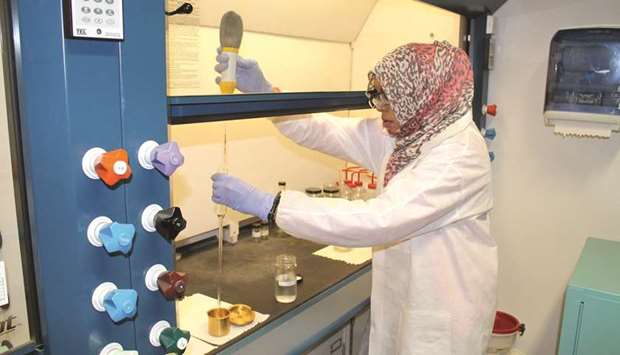Qatar National Research Fund (QNRF), a member of Qatar Foundation (QF), has announced the outcome of the first Clusters Track of the 11th cycle of its main funding programme, the National Priorities Research Programme (NPRP).
The aim of the new track is to solve complex, interdisciplinary research problems that require a holistic approach, with larger teams and strategic management to steer sub-projects towards achieving an impactful outcome.
The clusters call of the NPRP’s 11th cycle defined three priority themes that focus on developing innovative approaches to addressing Qatar’s major challenges, particularly those that have been resistant to traditional solutions. These themes are Carbon Capture & Utilisation (including Transportation Technologies); Prediction, Prevention and Early Diagnosis of Early Diabetes; and Cyber-Resilient Fintech.
Each cluster, led by a project director, comprised several sub-projects submitted and endorsed by a local research institution. Due to the size and complexity of the cluster projects, the submissions were divided into two stages. Interested project directors presented their initial research proposals to a panel of experts as a step towards full proposal submission – the second stage – based on the recommendations of the panel.
Dr Abdul Sattar al-Taie, executive director, QNRF, said: “For over a decade, QNRF has been committed to building Qatar’s research and innovation capacity, to make it a hub for cutting-edge research and scientific exploration.
“Encouraging and supporting local talent is crucial for our mission to promote the production and dissemination of knowledge, and fulfil Qatar’s objective of transitioning to a sustainable and diversified economy. NPRP-Clusters will ensure that end-users benefit from the research outcomes, and will strengthen mutually beneficial and constructive collaborations between relevant local and international stakeholders.”
Eight research proposals were received ahead of the deadline in April 2018, and underwent an extensive, two-stage evaluation process that resulted in the awarding of two projects.
The first cluster was awarded to Hamad Medical Corporation’s (HMC) proposal addressing the theme of Qatar Diabetes Prevention Programme, submitted by project director Professor Abdul-Badi Abou-Samra. This cluster comprises seven sub-projects with multi-institutional collaboration, and entails four clinical trials ... and e-health applications.
The outcomes of this project have the potential to deliver tangible impact for end-users, and to help minimise type 2 diabetes in Qatar, while expanding the intervention strategy regionally. It also includes sub-projects led by principal investigators from QF member Hamad Bin Khalifa University’s (HBKU) research entities Qatar Biomedical Research Institute and Qatar Computing Research Institute (QCRI), as well as Weill Cornell Medicine-Qatar, a QF partner university. The team will also engage in local research collaboration with QF members Sidra Medicine and Qatar Biobank, as well as the Ministry of Public Health, Qatar University (QU), Qatar Diabetes Authority, and The Primary Health Care Corporation.
QU received the second award, for its project addressing the Cyber-Resilient Fintech theme. Titled ‘A Secure End-to-End Blockchain-Based Solution to Finance Trade: The Legal, Technological, and Economic Framework,’ submitted by project director Dr Mazen El-Masri. This cluster comprises six sub-projects from multiple local research institutions and research-end-users, and focuses on developing innovative solutions based on blockchain technology to tackle issues faced by Qatar’s banking and Fintech industries.
Several Qatari stakeholders and research end-users are collaborating and co-funding the project, due to their interest in the outcomes. This cluster also includes sub-projects led by principal investigators from HBKU and QCRI, and will engage the private sector and local stakeholders, including the Ministry of Transport and Communications. Noor al-Merekhi, deputy executive director and director of Programmes Administration, QNRF, said: “This track distinguishes itself by placing a strong focus on developing innovative multi-disciplinary approaches and institutional collaborations, to ensure that our researchers build robust and sustainable solutions to the identified problems.
Both awarded clusters involve the collaboration of relevant local shareholders, in addition to their co-funding both cash and in-kind.” In the decade since its inception, the NPRP has emerged as one of QNRF’s prime funding programmes, supporting projects that aim to produce commercially and technologically viable solutions addressing Qatar’s challenges.
It is also one of the primary means through which QNRF is helping to build human capital, through promoting scientific and technological research in Qatar while encouraging collaboration with local and international stakeholders.

A researcher works on a QNRF-supported project.
